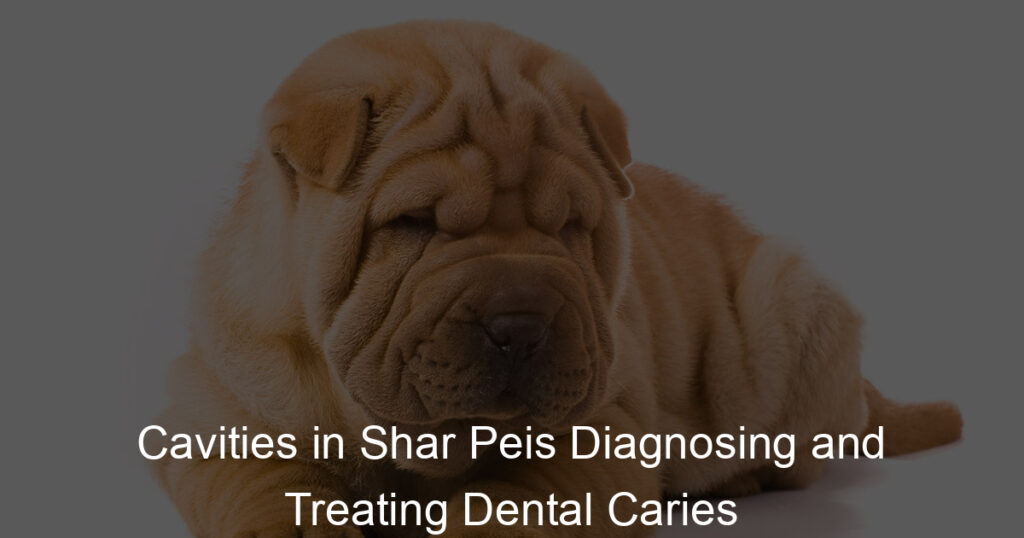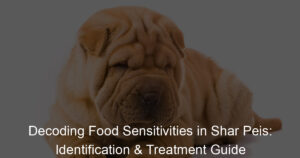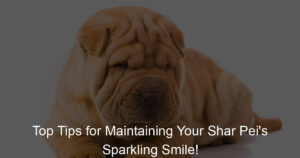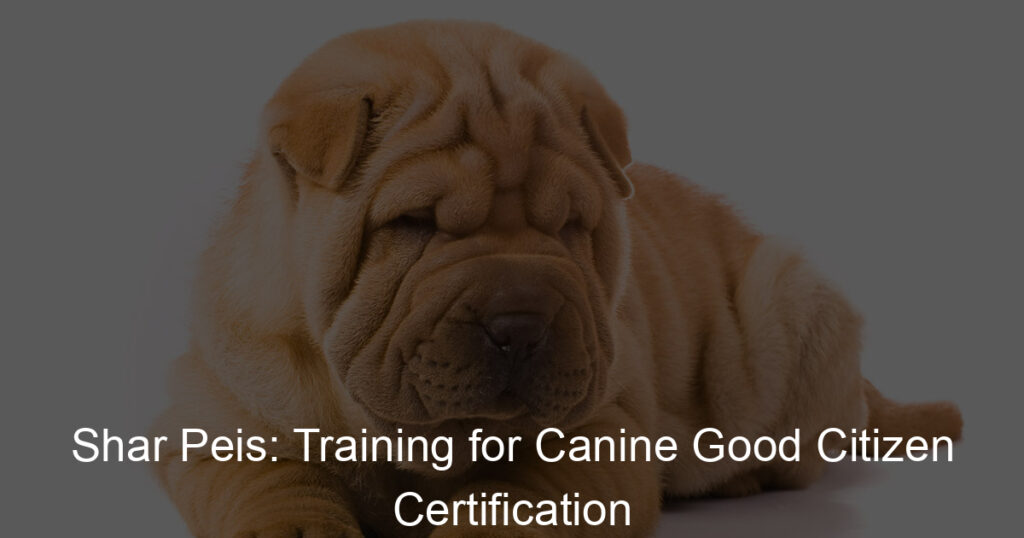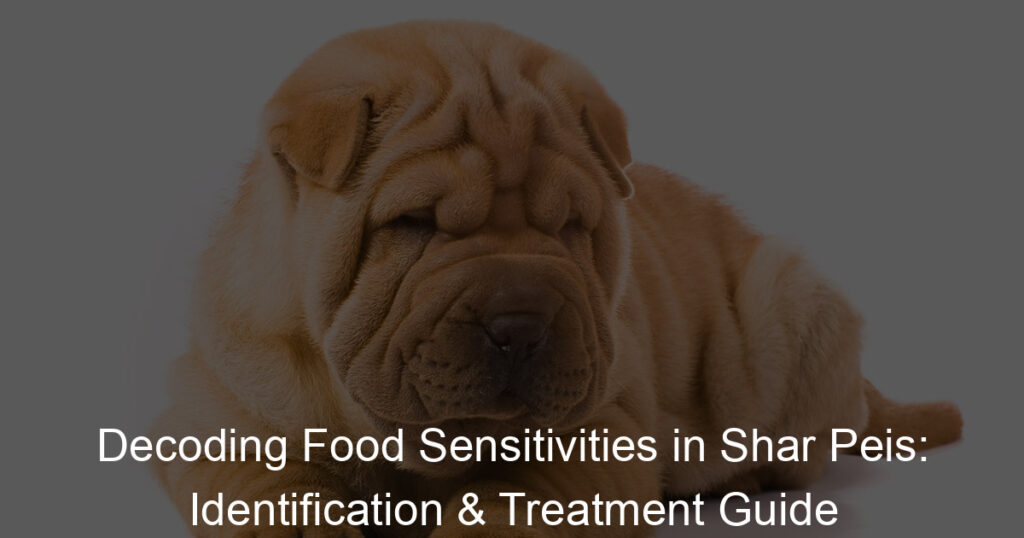We all know how important it is to take care of our teeth and gums – after all, a healthy mouth is essential for a healthy body! But did you know that your dog can get cavities, too? Yep – just like people, puppies are susceptible to developing dental caries, or cavities. Here’s what you need to know about diagnosing and treating cavities in Shar Peis.
How to Prevent Cavities in Shar Peis: Tips and Tricks
Prevention is often the best cure, and this is especially true for cavities in Shar Peis. One key way to prevent dental problems in your Shar Pei is by establishing a regular teeth brushing routine, ideally daily, using dog-safe toothpaste. Start this routine when your Shar Pei is still a puppy if possible, as this will make them more comfortable with the procedure as they grow older. Providing your dog with dental chews and toys can also help maintain oral health, as these can help to clean the teeth and stimulate the gums. Ensuring your dog has a balanced, healthy diet is also vital, as an excessive amount of sugary foods can lead to tooth decay. Avoid giving your Shar Pei human foods, as these can often contain sugar and other ingredients harmful to a dog’s teeth. Finally, regular checkups with your vet can ensure that any potential dental problems are caught early before they become serious.
The Role of Diet in Shar Pei Dental Health
Diet plays a crucial role in a Shar Pei’s dental health. Just like humans, dogs can develop cavities from consuming too many sugary foods. As a responsible dog owner, it’s important to ensure that your Shar Pei’s diet is balanced and healthy, and avoids excessive sugar. Opt for high-quality dog food that is designed to provide the nutrients your dog needs without the added sugars. It is also wise to avoid feeding your Shar Pei table scraps, as human food often contains sugars and other ingredients that are not good for a dog’s dental health. Treats should also be given in moderation, and preferably, they should be dental-friendly treats that help to clean your dog’s teeth as they chew.
The Importance of Regular Dental Checkups for Your Shar Pei
Regular dental check-ups are essential in maintaining your Shar Pei’s oral health. A professional can thoroughly clean your dog’s teeth, removing plaque and tartar build-up that you can’t handle at home. Moreover, veterinarians can identify early signs of cavities, gum disease, or other dental conditions before they become severe. Most veterinarians recommend a dental check-up at least once a year, although dogs with a history of dental issues may require more frequent visits. Each check-up is an opportunity to ask your vet about any concerns you might have and learn about the latest in canine dental care.
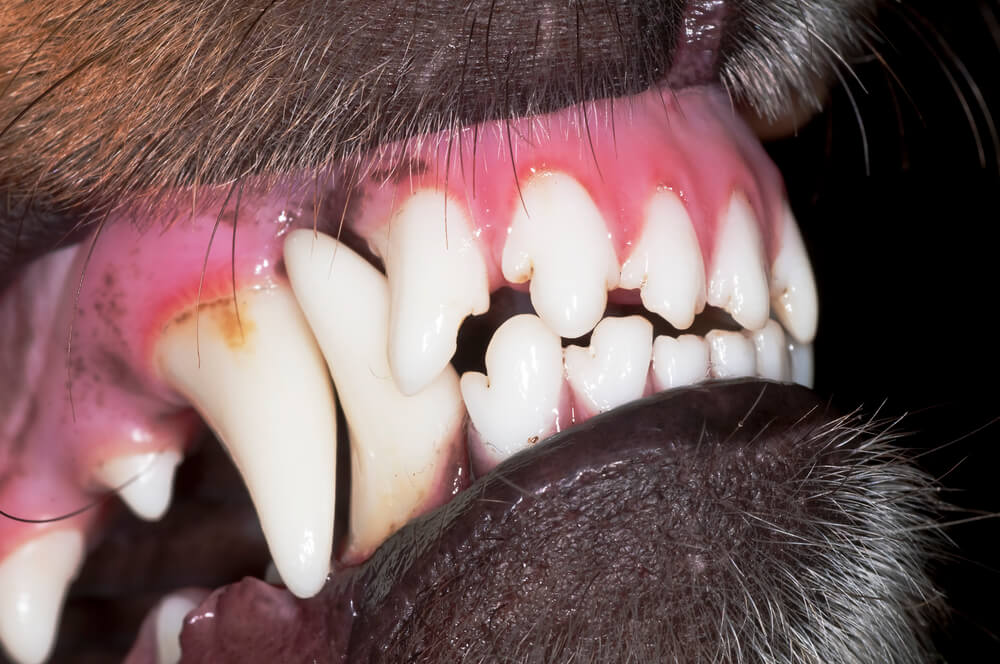
Shar Pei Specific Dental Issues: What Makes This Breed Unique?
Shar Peis are more prone to dental issues compared to some other dog breeds, due to the structure of their mouths and their genetic disposition. Their unique wrinkly skin often extends into their mouths, which can create areas where food and bacteria accumulate, leading to a higher risk of periodontal disease and cavities. Shar Peis also tend to have crowded teeth, due to their relatively smaller mouths, which makes proper cleaning even more crucial. Their genetic predisposition also makes them more susceptible to developing calicivirus, which can lead to oral ulcers and other dental issues.
Home Dental Care: Brushing Your Shar Pei’s Teeth
Home dental care is vital to maintain your Shar Pei’s oral health and prevent cavities. Brushing your dog’s teeth is an effective way to reduce plaque and tartar build-up, preventing gum disease and cavities. Start the routine when your Shar Pei is young to help them get used to the process. Use a toothbrush designed for dogs and a dog-safe toothpaste, as human toothpaste can be harmful to dogs. Aim to brush your Shar Pei’s teeth daily, but if this is not possible, aim for at least a few times a week. Remember to be gentle and patient, and to reward your dog after each brushing
Understanding the Signs: The Different Stages of Dog Cavities
Understanding the different stages of cavities like bad breath etc can help you identify and address dental issues in your Shar Pei promptly. Stage 1 cavity, the earliest form, often presents as small, white spots on the tooth’s surface, indicating an area of enamel that has started to lose minerals. At this stage, the damage might still be reversible with professional cleaning and dietary changes. Stage 2 cavity, or enamel decay, is characterized by a darker spot or hole in the tooth where the enamel has been broken down, which is irreversible. In Stage 3, or dentin decay, the cavity extends into the dentin, the layer underneath the enamel. This is usually when pain and sensitivity start. Stage 4, or pulp involvement, is the most serious stage, where the cavity has reached the pulp of the tooth, often causing severe pain and requiring immediate veterinary intervention.
How to Choose the Right Dental Treats and Toys for Your Shar Pei
Choosing the right dental treats and toys can significantly contribute to your Shar Pei’s dental health. Dental treats can help control plaque and tartar, freshen breath, and satisfy your dog’s natural desire to chew. Look for treats with the Veterinary Oral Health Council (VOHC) seal of approval, which indicates they meet certain standards for controlling plaque and tartar. Chew toys, particularly those designed for dental health, can also help massage the gums and clean the teeth. Choose toys appropriate for your dog’s size and chewing style to ensure safety and effectiveness. Always supervise your Shar Pei while they’re enjoying chew toys to prevent accidental swallowing of pieces that may break off.
Recovering from Dental Surgery: Care Tips for Your Shar Pei
If your Shar Pei has had dental surgery, they will need special care during their recovery period. Your vet will provide specific instructions based on the procedure performed, but generally, it’s essential to ensure your dog is comfortable and well-rested. You might need to provide a soft diet for a few days to avoid causing pain or disrupting any sutures. Monitor the surgery site for any signs of infection, such as redness, swelling, or discharge, and ensure your dog is not pawing at their mouth or rubbing their face on the ground, which could indicate discomfort. Pain management is crucial, so administer any prescribed pain medications as directed. Remember to follow up with your vet for any post-operative check-ups.
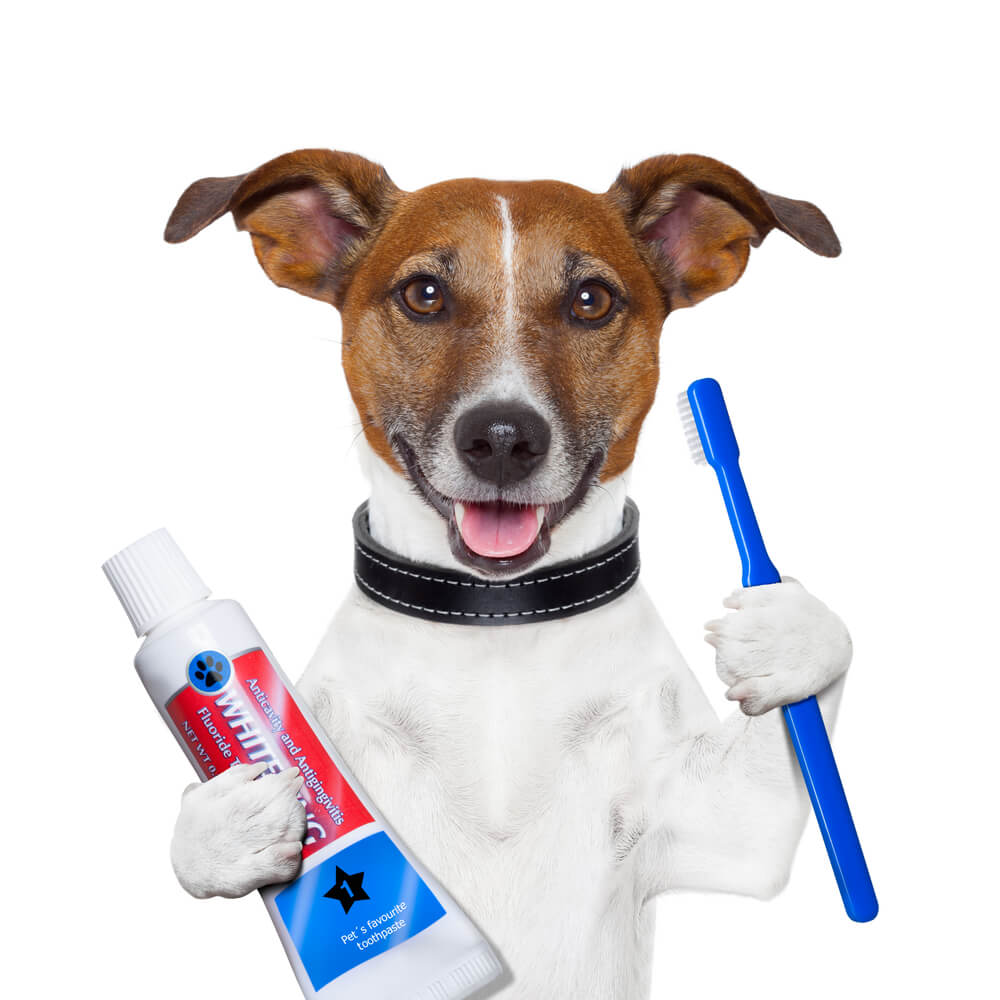
Teaching Your Shar Pei to Accept Tooth Brushing and Dental Care
Teaching your Shar Pei to accept tooth brushing and dental care is an important part of their overall health routine. Start the training early, while your Shar Pei is still a puppy if possible. Begin by getting them used to having their mouth and teeth touched. Then, introduce the toothbrush and toothpaste, allowing them to sniff and taste the toothpaste (always use a dog-safe toothpaste). Begin brushing gently, focusing on the outside of the teeth, and gradually increase the duration as your dog gets more comfortable. Always end each brushing session on a positive note, with lots of praise and a small reward. Remember, patience and consistency are key.
Case Study: A Shar Pei’s Journey Through Dental Treatment
To fully grasp the importance of dental care for Shar Peis, let’s consider a case study of a Shar Pei named Bella. Bella was a 4-year-old Shar Pei who was brought to the vet due to pawing at her mouth and a decreased appetite. Upon examination, Bella was found to have several cavities and gum inflammation. Bella’s owners admitted they were not aware of the need for regular tooth brushing and dental check-ups for dogs. Bella underwent professional dental cleaning and had several teeth filled. Post-surgery, Bella was put
How do you know if a dog has a cavity?
Identifying whether a dog has a cavity can be tricky; however, certain signs can help you determine if your pup needs to get a checkup from their vet. Generally, dogs with cavities will experience toothache-related behaviors, such as pawing at their mouth and visibly avoiding food or treats.
Moreover, they may shift their weight and whimper when trying to chew on something hard. You should also keep an eye out for plaque build-up or discoloration around the gums and teeth. If you suspect your dog is suffering from tooth decay or any other dental issues, it’s important to provide them with prompt medical attention as soon as possible.
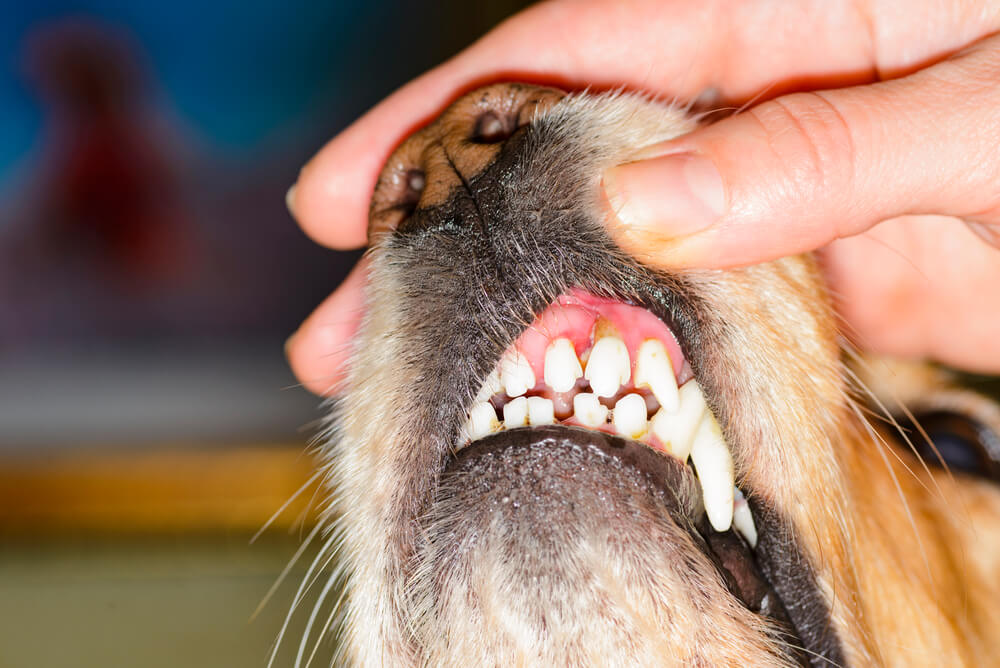
At what age do dogs get cavities?
Dogs can suffer from cavities, just like humans! While it might sound strange to think of canine cavities, it is a reality for many beloved pooches. In general, dogs develop cavities around the age of four or five. This is because their teeth have just finished developing and it takes time for enamel to form around them, protecting them from decay.
Just as with people, diet plays a role in the number of cavities a dog will get; too much sugar can cause dental problems that may lead to cavities. So make sure to keep those pup treats low-sugar and regular trips to the vet are always key to a healthy puppy!
What is Stage 1 dog cavity?
Dog cavities, also known as dental caries, are a common problem that can result in serious health issues for your pup. Stage 1 dog cavity is the earliest form of tooth decay and is treated with a professional cleaning from your vet to remove any plaque buildup or tartar.
To prevent further progression of the cavities, the vet may also recommend an at-home brushing regimen accompanied by regular dental checkups. Thankfully, early detection and treatment can ensure that this does not progress to more severe stages and cause further pain or disease for your beloved pooch.
What happens if a dog has a cavity?
If a dog has a cavity, it’s essential to take them to the vet as soon as possible. Cavities unfortunately don’t usually just go away – if left untreated, bacteria can spread and potentially cause serious infections or even damage vital organs. Fortunately, cavities can be prevented in dogs by limiting their access to sugary treats and brushing or wiping down their teeth with a special toothpaste.
If necessary, your vet may recommend additional treatments such as anesthesia to treat the gums and teeth or surgery for more advanced cases. It’s important to stay on top of your pup’s oral hygiene to avoid the unpleasantness of cavities altogether!
What is the treatment for dog cavities?
For dogs with cavities, the treatment is similar to that of humans – they must undergo a professional dental cleaning and possibly have their teeth filled or pulled. Most owners opt for the former to preserve their pet’s natural teeth. Unfortunately, cavities can lead to severe pain and infection in dogs, so it’s important to have your canine companion’s teeth looked at by a vet as soon as possible if you think he might have decay.
Treatment for a dog having a cavity often includes antibiotics, tooth extraction, tooth fillings or crowns, or an operation to drain any abscesses. If your pup already has advanced cavities, the vet may even recommend removing several teeth at once. While this form of dental surgery is quite common these days among pets, it can be a painful process—for both you and your pooch!
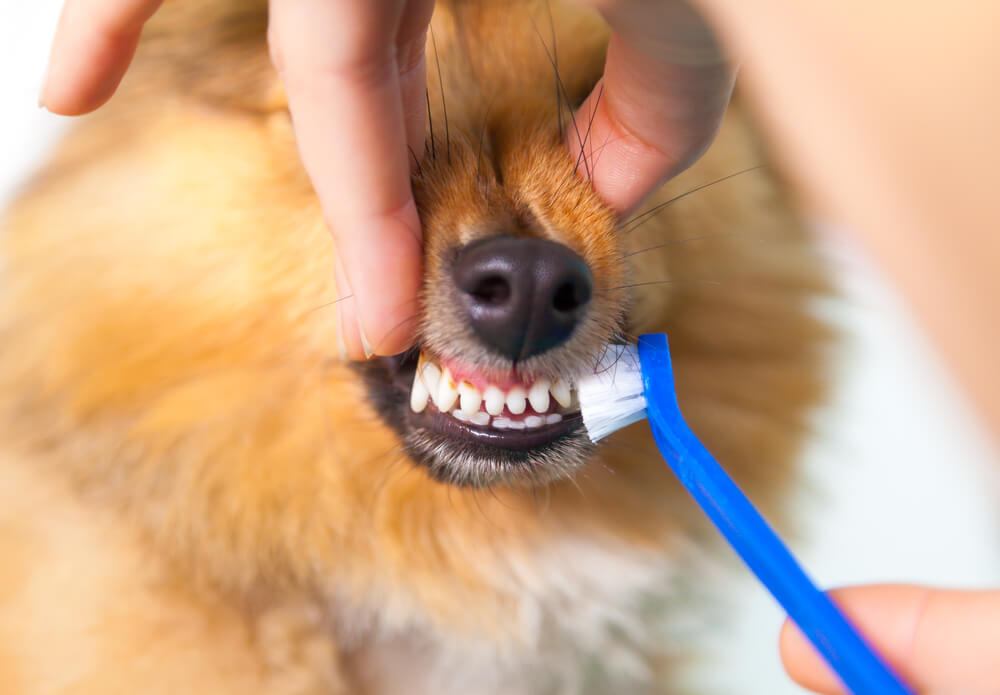
Conclusion
To conclude, Shar Pei’s dental health is an important topic that any Shar Pei owner or potential owner should be aware of. By understanding how cavities develop, the signs to watch for, and the treatments available, pet parents can ensure that their dog’s teeth and gums stay healthy for years. Regular vet visits are especially essential for this breed because they are at a higher risk for both periodontal disease and cavities than their canine companions of other breeds.
Professional cleanings and extractions can help keep oral bacterial growth in check while maintaining a strong, healthy mouth. And keeping up with regular brushing at home will significantly reduce plaque buildup, encourage healthy gums, and reduce tartar buildup on the teeth. No matter what preventative measures one takes to ensure good dental hygiene, remember that being educated on the subject is paramount for proper care.

